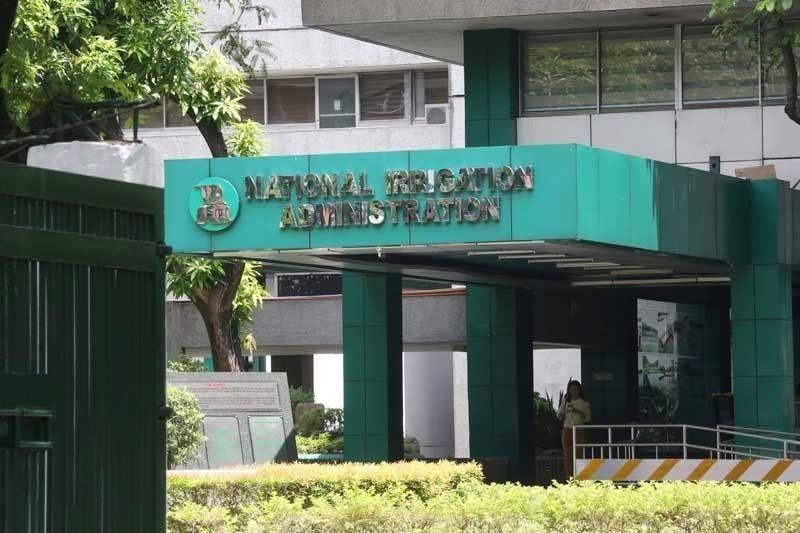Marcos orders NIA, DPWH: Speed up irrigation projects

MANILA, Philippines — President Marcos yesterday ordered the National Irrigation Administration (NIA) and the Department of Public Works and Highways (DPWH) to work together and speed up the implementation of high-impact irrigation projects, an official said yesterday.
NIA Administrator Eddie Guillen said the “convergence effort” by agencies would allow the government to save money and implement projects with high economic returns.
“We have given our list of projects and he told Secretary Manny Bonoan of public works that we should help each other. If the public works department identifies a project, the NIA will provide assistance,” Guillen said at a press briefing in Malacañang.
He said that ideally, the government has to carry out P200 billion worth of dam projects a year that can serve different purposes.
“For me, the government should implement around P200 billion worth of dam projects to change the agricultural landscape,” Guillen said.
“Dams are flood control projects. The advantage of dams is they are not for irrigation. They can also serve as power sources… they can be used for aquaculture and tourism. You can place solar panels on the dams too,” he added.
Guillen said the NIA could identify projects that are expected to yield benefits or present project plans to the DPWH.
He said Marcos wants to bridge the gap caused by “parochial thinking” of some government agencies that prefer to undertake projects by themselves.
The government’s convergence efforts in food security were discussed during the sectoral meeting of the agriculture department yesterday in Malacañang.
The meeting tackled the rice supply-and-demand outlook in the country for this year, interventions to ensure enough supply of corn, pork, chicken, fish, sugar and rice, as well as initiatives aimed at speeding up the recovery of the hog sector from African swine fever.
Cropping schedule
At the same meeting, Marcos said he wants a detailed cropping schedule to ensure that agricultural imports won’t harm local production.
According to the Presidential Communications Office, Marcos asked agriculture officials to be more detailed on the cyclical nature of crops to avoid importing products during the harvest season.
Marcos cited the need for the government to “consider the sensitivities of local cropping,” particularly its cyclical nature when sourcing products from other countries.
“We don’t just import products if we have a lot of production so we can consume all the local produce,” the President said in Filipino.
“We’ll only import if we really lack supply and that’s what I mean about the cyclical nature of crops, that we have to be sensitive to that,” he added.
Marcos said Filipino farmers have to alter their planting schedule in some areas due to climate change.
The changes in the schedule, which were meant to take advantage of the moving rainy season, may yield some benefits as farmers can have three cropping seasons per year, he added.
Climate change, Marcos said, complicates the process and the farming sector should adjust accordingly.
The agriculture, forestry and fishery sectors grew by a modest 0.5 percent last year.
Under the Philippine Development Plan, the agriculture department is seeking a growth rate from 1.8 percent to 3.3 percent in the agriculture sector from 2023 to 2028.
Fishery
Marcos gave assurance that the government has started crafting a plan to improve the Philippines’ fishery sector.
Agencies have been tasked to develop the necessary infrastructure and facilities to increase production, he said.
“So we have started to formulate a plan to improve the fishing grounds for our aquaculture that is in land, in our rivers and freshwater, although we have a good supply of tilapia and bangus. Although we are looking at galunggong, but the truth is we still have other areas of production,” he said.
“Now, we still lack production in the fisheries so we need to look at the mariculture, the fish in the sea. That is basically what we were discussing and putting together. Also, we were already starting to give the (task) to different agencies like DTI (Department of Trade and Industry), DBP (Development Bank of the Philippines), LandBank and the CDA or the Cooperative Development Authority.”
Measures designed to improve production of basic agricultural commodities include rehabilitation and modernization of fish port complexes as well as implementation of agricultural and fishery machinery and equipment service center.
Base on the 2023 demand and supply outlook for basic commodities, the Philippines’ 3.55million-metric ton demand for fish outpaces supply at 2.97 MT.
- Latest
- Trending




























